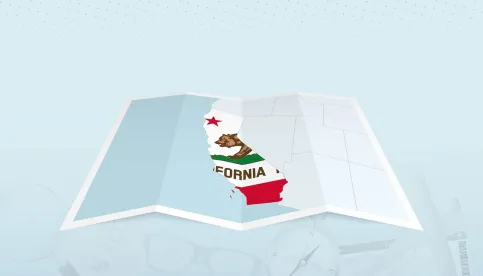On July 10, 2023, California Governor Gavin Newsom signed into law a suite of bills intended to facilitate the permitting and approval processes for clean energy and other infrastructure projects in California.
Enactment of these measures in conjunction with the state’s budget bill marked the culmination of negotiations between the governor and state legislators that began on May 19, 2023, when the governor’s office announced a number of legislative proposals to streamline approval and permitting processes for clean infrastructure projects in California. On the same day, Governor Newsom issued Executive Order N-8-23, creating an Infrastructure Strike Team to work across state agencies to maximize federal and state funding opportunities for California innovation and infrastructure projects. The governor’s legislative proposals and executive order reflect the administration’s commitment to infrastructure development in California.
Executive Order N-8-23 has the potential to facilitate coordinated and streamlined project review and permitting processes in California, as well as the development of a robust California-specific project tracking system. Under the order, the Infrastructure Strike Team is tasked with identifying priority infrastructure projects; supporting governmental coordination on review, permitting, and approvals; and creating working groups focused on specific project categories, such as transportation, energy, hydrogen, environmental remediation, broadband, water, and zero-emission vehicles. The order’s approach is similar to that taken in the federal Fixing America’s Surface Transportation Act (FAST-41), designed to improve the timeliness, predictability, and transparency of the federal environmental review and authorization process for covered infrastructure projects. The Infrastructure Strike Team is also tasked with holding government oversight bodies accountable to “deliver results in an expedited and effective fashion” and establishing dashboards to track the progress of priority projects, including milestones, funding, federal application deadlines, workforce development, and progress toward equity goals.
As for the newly enacted laws, the following measures—all of which contain an “urgency” clause that give them immediate effect—could be key in advancing the governor’s stated goals of maximizing taxpayer dollars and accelerating project timelines throughout the state, while “ensuring appropriate environmental review and community engagement”:
SB 149, CEQA Reforms, makes several changes to the California Environmental Quality Act (CEQA) intended to streamline and potentially expedite judicial challenges to CEQA documents, including (1) shortening the administrative record on review in a CEQA challenge by excluding internal agency communications on non-substantive matters from the record; (2) allowing an agency to deny a request by a CEQA petitioner or plaintiff to prepare the record of proceedings; (3) allowing certain energy, transportation, water, and semiconductor projects to be eligible for expedited judicial review under CEQA (i.e., the judicial action must be resolved, to the extent feasible, within 270 days of the filing of the record of proceedings with the court); and (4) extending the sunset of the Economic Improvement Through Environmental Leadership Act of 2021, which allows the Governor to certify certain “environmental leadership development projects” for streamlined treatment under CEQA.
SB 147, Fully Protected Species, authorizes the state’s Department of Fish and Wildlife (DFW) to permit the incidental take of “fully protected species” for specified infrastructure projects—including wind and solar projects, as well as their appurtenant infrastructure improvements and associated electric transmission projects—if certain conditions are met, such as avoidance and mitigation measures and the development and implementation of a DFW-approved adaptive management plan designed to satisfy conservation standards set forth in the Fish and Game Code.
SB 150, Workforce Development, embeds workforce and community benefit requirements in procurement and contracting for infrastructure and manufacturing investments facilitated by the federal Infrastructure and Investment Jobs Act (IIJA), Inflation Reduction Act (IRA), and Creating Helpful Incentives to Produce Semiconductors and Science Act (CHIPS Act).
SB 146, Design-Build Project Delivery and NEPA Assignment, authorizes the use of the progressive design-build project delivery method for the California Department Transportation (CalTrans) and the Department of Water Resources (DWR) for up to eight public works projects per department with an estimated contract price exceeding $25 million. As explained in the Senate Floor Analysis of the bill, “progressive” design-build is a variant on traditional design-build contracting encompassing a two-phase process: (1) use of a “best value” process by the sponsoring government agency to select a design-build entity that completes preliminary plans and preconstruction services necessary to provide a cost estimate and final design proposal; and (2) agreement between the sponsoring agency and design-build entity to a final design, project cost, and schedule. The bill also expands existing authorization for the California Secretary of Transportation to assume responsibilities under the National Environmental Policy Act (NEPA) for railroad, public transportation, or multimodal projects, extending this authorization through January 1, 2034.
SB 145, Environmental Mitigation and Interstate 15 Wildlife Crossings, authorizes CalTrans, through December 31, 2033, to acquire property for environmental mitigation purposes for the state highway system, purchase environmental mitigation credits or enter agreements to mitigate environmental impacts from transportation projects or for advance mitigation purposes, and ensures construction of three wildlife crossings over I-15 if an intercity passenger rail project is constructed.
The legislature voted to approve the bills last week. Now that they are signed by the governor, the laws are all immediately effective. It remains to be seen, however, whether these measures will have significant impacts on project delivery.






 />i
/>i

